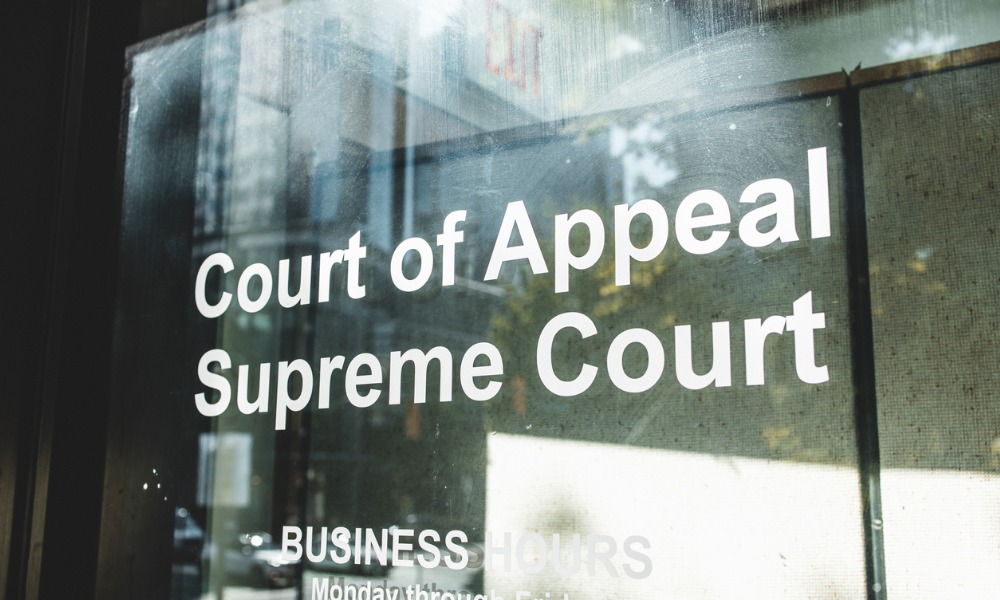The case involves extracted material deposited into Albino Lake

The BC Court of Appeal has granted leave to appeal in a landmark case that might impact the resource extraction industry.
In Skeena Resources Ltd. v. Mill, 2023 BCCA 249, Skeena Resources Ltd. purchased the Eskay Creek Mine in 2020 and acquired all of its predecessors’ rights, leases, and permits, which include mineral claims, mining leases, and permits issued under the Mines Act, Mineral Tenure Act, and the Environmental Management Act. These permits authorize the operation of the mine, require all waste rock and tailings from the mine to be deposited into Albino Lake, and impose ongoing monitoring and environmental obligations.
Richard Mill became the record holder of a mineral claim to the land area, including Albino Lake, in 2017. Skeen never held mineral rights to the Albino Lake Land. However, Mill discovered that Skeena had conducted exploratory drilling on the Albino Lake and found that the material extracted had economic value due to current gold and silver prices and new methodologies of metallurgical extraction. Mill applied to the Chief Gold Commissioner to determine who owned the material. The Commissioner decided in Mill’s favour.
Skeena appealed the Commissioner’s decision to the BC Supreme Court, but it eventually dismissed Skeena’s appeal. As a result, Skeena asked the Court of Appeal for leave to appeal the supreme court’s decision.
The appeal court noted that mining and the extraction of minerals are governed by the interplay between Mineral Tenure Act (MTA) and the Land Act. The court further explained that a chattel interest in minerals is acquired by obtaining a mineral claim or a mining lease. Leases may be issued over Crown land with the stipulation that such leases do not derogate from the Crown’s ownership rights of minerals in the leased land, including the right to extract them. Skeena has a surface lease that was subject to these exceptions and reservations.
The court found that Skeena continued to hold a chattel interest in the minerals extracted during the mine operation. The material was deposited in Albino Lake, where Skeena has a surface lease. Mill acquired a chattel interest in the minerals “situated vertically downward from and inside the boundaries” of his mineral claim that was “held by the government” when he was recorded as the holder of the claim over the Albino Lake Land.
Skeena argued that the material was not “held by the government” at the time Mill acquired his claim because Skeena’s predecessors had mined the minerals contained in the material, taken possession of them and placed them for storage in Albino Lake. The title did not revert to the government.
The Commissioner disagreed, finding that Skeena lost its chattel interest in the material to the government when it was disposed of in the lake. Skeena raised the matter to the appeal court, primarily arguing that the Commissioner made an error in concluding that Skeena relinquished its chattel interest in the material by putting it in Albino Lake. The judge found that the Commissioner’s conclusion was consistent with the statutory framework.
In its leave to appeal application, Skeena argued that its proposed appeal raised legal issues of general importance because Crown dispositions, such as the Surface Lease, incorporate statutory provisions, the correct meaning of which will be necessary to the resource extraction industry and other stakeholders. Skeena also argued that the appeal has a public law dimension.
The court found that the proposed appeal raised questions of mixed fact and law and that Skeena has made an arguable case that the alleged errors of law are extricable. The court agreed with Skeena that delineating the chattel interest in the material, deriving from the MTA and Land Act and incorporated into the surface lease, might be necessary for the resource extraction industry.
The court was satisfied that Skeena’s proposed grounds of appeal present an arguable case that raises questions of law concerning whether the Commissioner applied the principles of contractual and statutory interpretation, both of which are interconnected. The court stressed that whether Skeena’s predecessors lost their chattel interest in the material when they deposited it in Albino Lake derives from the statutes and the surface lease.
The court concluded that the issues raised by Skeena have sufficient merit to warrant review by the court.










